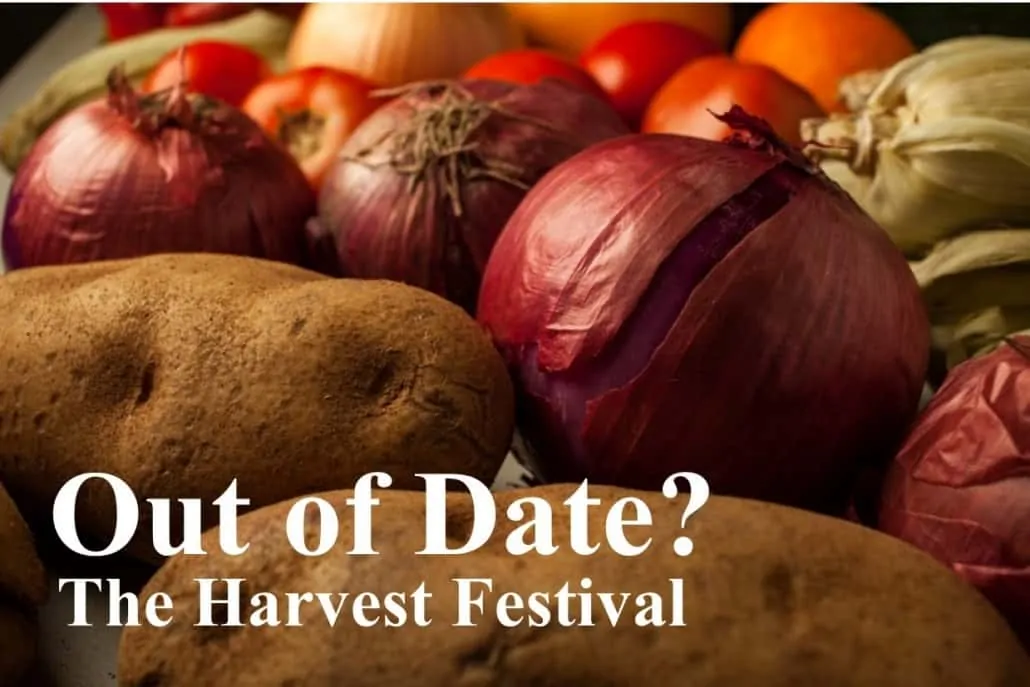
Is the Harvest Festival an outdated tradition or could it be a celebration that helps city dwellers reconnect with a vital part of life in our technological age?
Harvest was a big deal in the village where I lived. You knew it was happening when you saw the clouds of dust rising from the combine harvesters in the fields. You wished it would finish when the tractors clogged up the small country roads. And you guessed it was over when the village pub was heaving with ruddy farmers knocking back the Cider.
The Tradition
The pews of the village church were full at the Harvest Festival. The community understood the importance of the produce they grew. They knew there were no guarantees of a crop. And, although many did not grow pumpkins or worship God, they would dutifully lay a large tuber on the alter table, in the hope that it would curry favour with the ‘Lord of the Harvest.’
In an urban area like Morden, however, the Harvest Service may seem like a quaint but irrelevant celebration. The Sainsbury’s Local stocks tomatoes all year round. Many would be hard pressed to pinpoint picking season – unless they had a grow-bag on the patio. The ingredients in food, how or where it was produced, and the environmental impact on the harvest would be taken on trust from reading packets or websites.
A Reinvention?
Should urban churches quietly put the Harvest Festival out to pasture, like a much-loved horse that no longer fulfils its purpose? Or perhaps they should radically reinvent the service for modern times, celebrating the produce of urban labour?
The electrician could present at church the air conditioner that he assembled; the IT programmer might gift the software package that she coded; and the Parking Warden might stick a yellow payment notice on the church stained glass window.
Albert Borgmann, a German philosopher, said that in a highly technological culture like our own, machines often conceal the process of production, disconnecting us from an important aspect of our world and humanity. He argued, not that we should get rid of devices, but that we should unmask the processes and practices that are hidden from view. In the production of food, that would mean ‘focal practices’ that showed the origins, work and natural processes that went into the food. From a Christian perspective, this would mean doing things that reconnect people with God.
A Recognition
The Bible says that, ultimately, it is God who gives everyone life and breath, and every good thing (Acts 17:25). He sustains our natural world. Harvest Festivals are therefore more than a thanks-giving for crops but a celebration of the goodness of God, who “causes his sun to rise on the evil and the good, and sends rain on the righteous and the unrighteous” (Matthew 5:45). This kindness of God is seen, in general, through the regularity of the seasons but, more specifically, through the giving of his Son, Jesus, who came to earth to die, taking our punishment for our abuse of his world, so that whoever believes in him might not perish but have eternal life (John 3:16). It is this undeserved kindness of God that lies behind the giving of food and money at Harvest services, which are donated to those in need.
A Re-connection
A harvest service could therefore be an important part of urban life now. Where townies are largely ignorant of the joys or sorrows of the harvest and unaware of the one true God of grace, harvest maybe a time to remember and reconnect.
Harvest is celebrated in September and October this year. For details of services, visit the events calendar. Gifts of non-perishable food or money for various charities are welcome.
